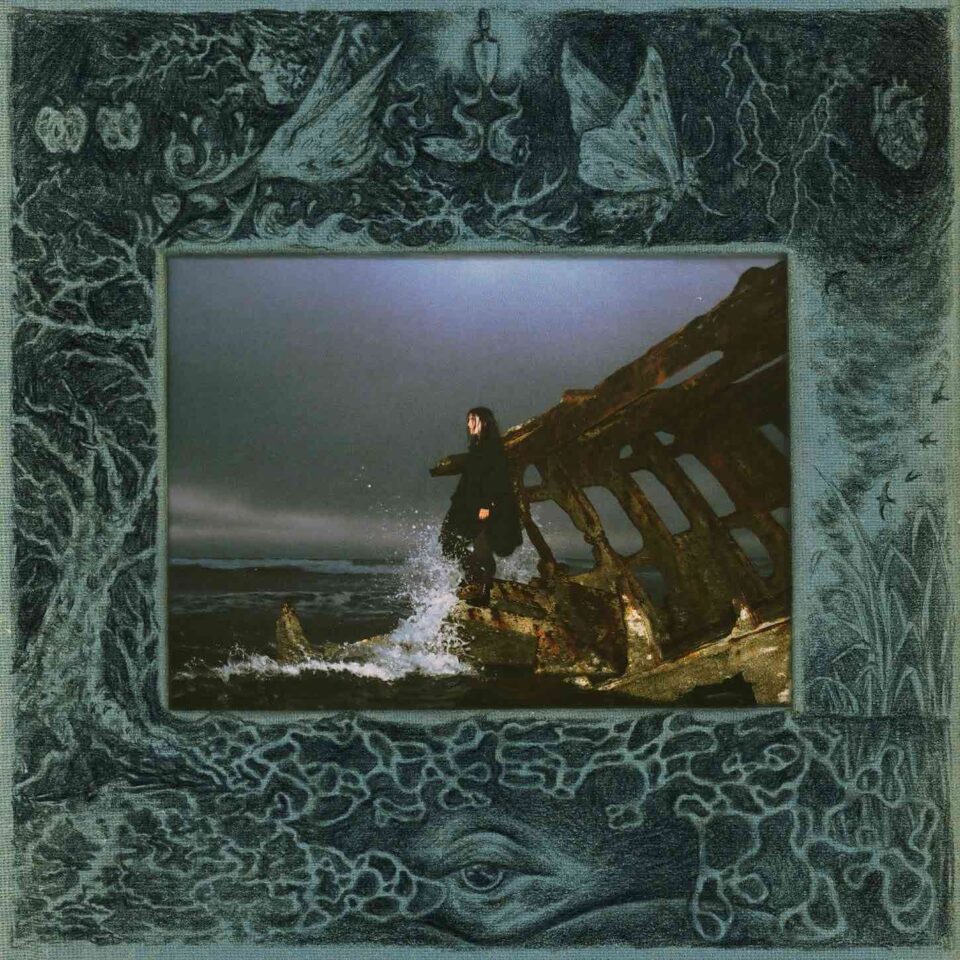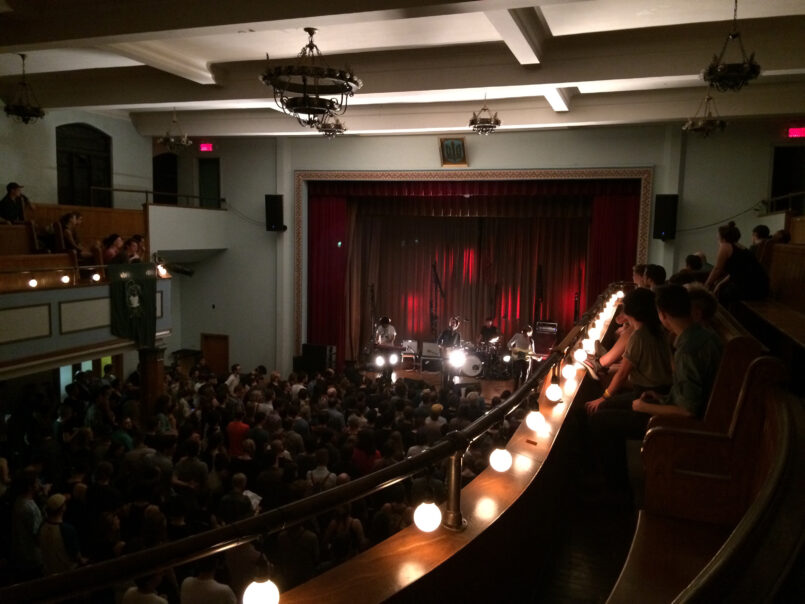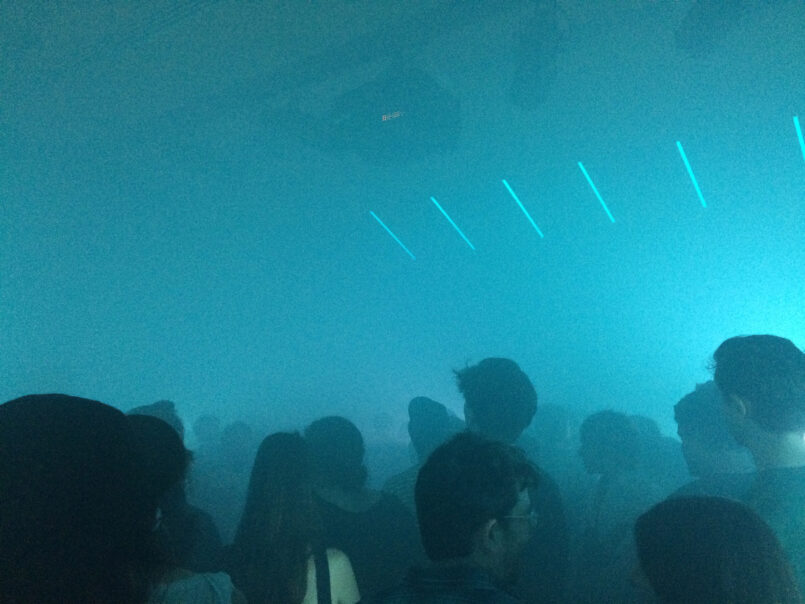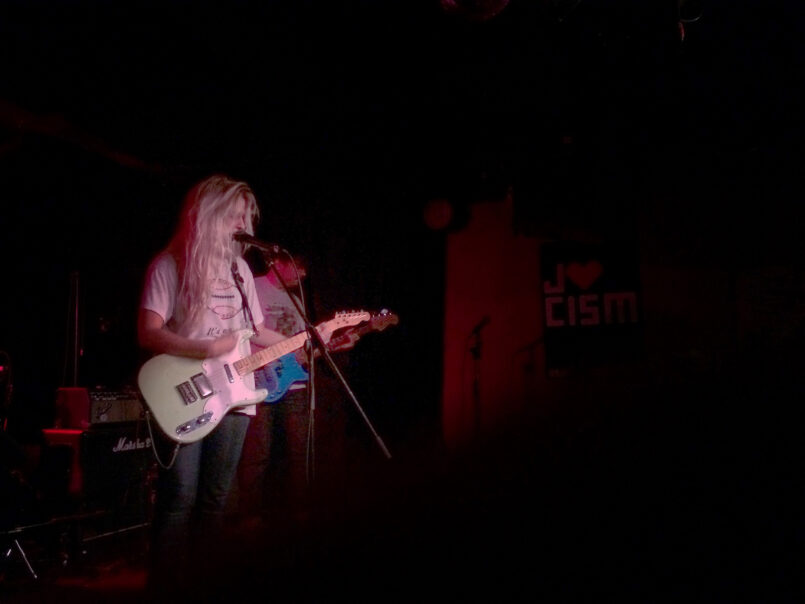It’s been years since Montreal was a secret, if indeed it ever was. In February 2005, SPIN called it “The Next Big Scene” based on the au courant strength of the French-Canadian island city’s musical exports, and things would only escalate from there. While some of the bands that article profiled have fallen off (wherefore art thou, Les Georges Leningrad?), they’ve all been replaced and surpassed by a seemingly never-ending wave of fresh and sometimes vital acts. The case can easily be made that, outside of New York City, no North American metropolis has contributed more to the indie-rock conversation in the past ten years. Consider that the city’s international reputation is (unfairly, though certainly) being set by the work of minority anglophones who make up 10% of the city’s population and the proportions become psychedelic; imagine being perpetually keyed into what’s going on in Provo, or East Lansing, or Modesto.
At the center, sustaining and nurturing this ongoing artistic success, sits POP Montreal, the international music festival, symposium, record fair, craft market, and all-around showcase of the best of what the city has to offer. POP has directly played a part in the careers of Japandroids—who were ready to hang it up before the release of Post-Nothing when a raucously received set convinced them to give it another go—Majical Cloudz, and tUnE-yARdS. It’s not uncommon to see members of Arcade Fire milling around at venues, POP–branded tote bags on their shoulders.
As with POPs past, the festival organizers this year used their bully pulpit to champion up-and-coming locals. That meant a prime Wednesday-afternoon slot for FOXTROTT, who soundtracked the official kickoff party in a converted art school just off of Sherbrooke, the city’s main east-west drag. Playing for a mostly industry crowd in a dark room, the trio ran through cuts from their debut, A Taller Us. If the press agents and arriving artists wandering in and out of the room were a distraction, the group hardly showed it; while A Taller Us is (relatively) straightforward post-Grimes bedroom R&B, the live bass is provided by a French horn, a tidy encapsulation of the past ten years of Montreal music.
If any of this year’s bookings is going to use the POP platform to break wide, though, Ought seem the most likely. The quartet of American expats released Sun Coming Down, their anxious new record, on the festival’s second night and played a deeply sweaty set at the Ukrainian Federation, a humble former church whose conversion into a music space didn’t include air conditioning. Singer Tim Darcy, looking for all the world like a flushed Tom Verlaine up there, shrugged and shuddered his way through the set, his face dripping with sweat. Live, the cerebral core of Darcy’s lyrics wilts in the humidity of sound, but his vocal gawping reclaims the lost ground. The despair he articulates on Sun Coming Down (“How’s the church? How’s the job? Fancy meeting you here!”) feels distinctly American—or if not American, at least distinct from the languorous world of Mile End, where the Hasid still walk en masse from synagogue to deli counter to grocery, passing fences taken over by locked-up fixies and sidewalk bistros with chalkboard menus and young transplants from the Rest of Canada (as it’s sometimes called in Quebec). That the crowd for Ought—not a hard sellout, but devoted and committed to physical expression—reacted the way it did probably says just as much about the permeability of ennui it does Darcy’s ability to express it.
But POP’s truest strength isn’t really in its ability to break young indie-rock bands so much as its commitment to showcasing whatever the organizers happen to find interesting and honoring the trust it’s developed with its audience. The night before Ought strode the boards at Ukrainian Federation, the venue hosted the premiere of Vieux Farka Touré and Julia Easterlin’s collaborative project. It’s difficult to say what in Easterlin’s voice attracted the titan of Malian guitar—while her vocal range and control are impressive, the songs whose service she puts them to are the kind of hoarse and Feist-ian indie-pop being made by plenty of others. Which isn’t to say that the experiment was completely lacking in charm; when the duo (who were backed by a bassist, percussionist, and trumpeter) allowed themselves a little room to stretch, the results were genuinely moving. In a sign of what may still be to come, Easterlin at one point flattened her voice into cooed monosyllables, looping them in with washes of trumpet, then chanted along as Touré ran down the blues, creating a kind of nesting sense of harmony—sounds within sounds within sounds—that suggested a truer hybrid of the pair’s abilities.
Tim Hecker debuted a new piece entitled Fog II on Friday night at Centre PHI, a progressive arts space in Old Montreal. The organizers controlled the entrance, letting only a couple of people at a time wander into the space, which had been filled to the point of virtual invisibility with a fog scented by a perfume that Hecker himself commissioned; perhaps unsurprisingly, given his usual concerns, it smelled a bit like church incense—high, sharp, a little sweet. The new piece, which incorporated a few loops left over from Virgins, centered around the clamoring of a bell, bleached and blown-out across what must have been the entirety of the EQ. It rang so deep, and the sound emanating from the speakers encircling the crowd was so loud, that it gave the impression of being inside of the bell—not so much in the way that the hammer is inside of the bell, but the way that bronze is inside of the bell. It was elemental, and like most of what Hecker does, it showed both that there is a limit to what the human senses can process in real time and that that limit is greater than you might think.
With the smoke cleared, Centre PHI played host to Texas soul legend Barbara Lynn the following night. Lynn rarely leaves town to perform, and this set, which was co-produced by the New Orleans garage-and-soul festival Ponderosa Stomp, was apparently three years in the making. Still, if she had any hesitations, Lynn hid them well. She played the hell out of a guitar whose gold pickguard was etched with roses. Blues guitarist Lil’ Buck Sinegal, a legend of the underground in his own right, led Montreal’s Key-Lites while Lynn’s stepdaughter and granddaughter held down backing vocals. She looked fresh up there, not a bit unnerved by playing so far from home and in complete command of the rapt crowd.
Many hours and trips up and down Boulevard Saint-Laurent later, Bully closed out POP at Le Divan Orange, a tiny room sandwiched between an anonymous office building and a somehow more anonymous bar on the city’s main drag. It’s not been difficult to see Bully this year—they are playing or have played at a festival near you, promise—and that road wear might be beginning to show in Alicia Bognanno’s hoarse whispers between songs. But just as it taketh away, the road giveth, too, in the form of precision and power. The quartet were note perfect, bashing through cuts from the excellent Feels Like with the facility with which most people speak in their mother tongue.
There are many ways to POP. Entire festivals could be constructed around the mini-genres that dot the lineup like mushrooms up the slope of Mount Royal. You could spend your week in conversation with Arto Lindsay and Hecker and Stars of the Lids’ Adam Bryanbaum Wiltzie at the symposium and make it to bed at a reasonable hour and still feel like you’d spent your loonies well. Like the city that gave it birth and which it now helps to define, it is polyglot, and in its schedule is the reconciliation of differences inherited and largely disowned by the last couple of generations of Quebecers. The secret’s out. FL










